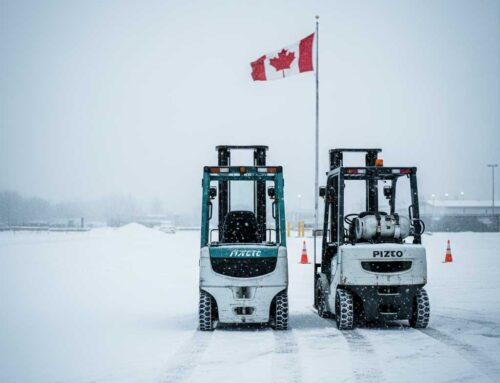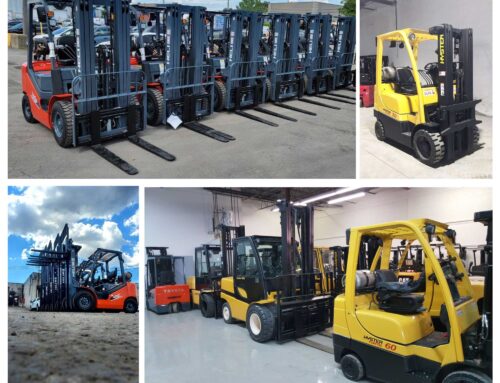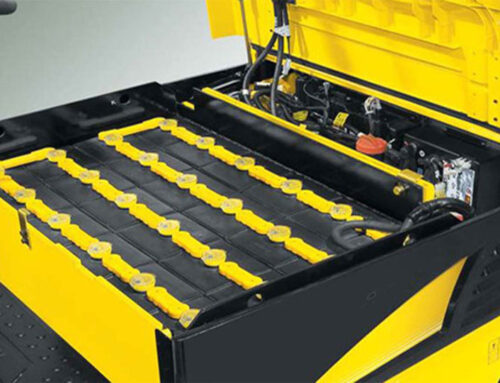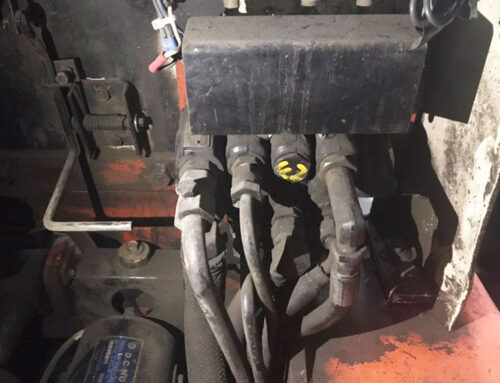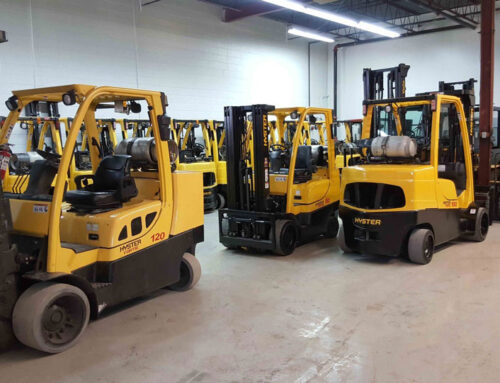Why Choosing the Right Forklift Matters in Canadian Winters
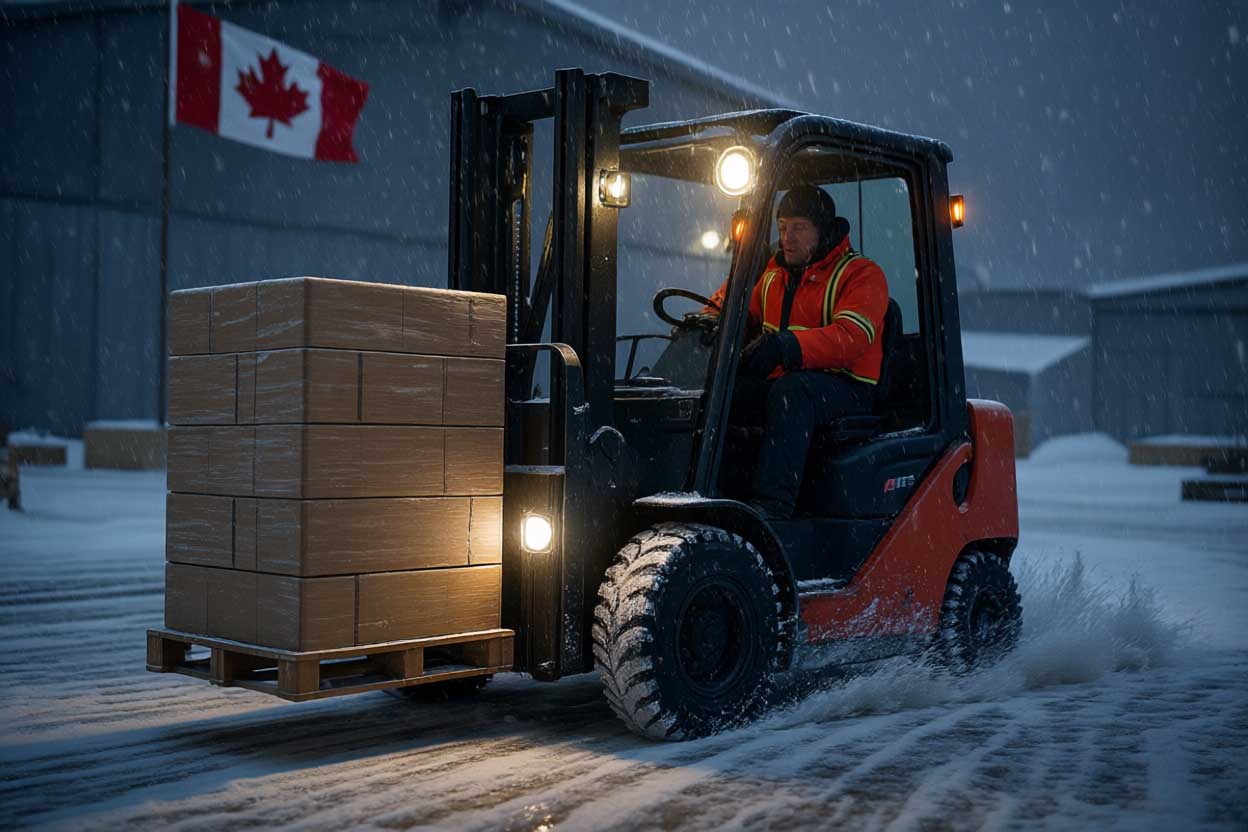
Canada’s winters are among the harshest globally, with heavy snow, ice, and sub-zero temperatures. Choosing the proper forklift is critical to maintain efficiency, operator safety, and reduce costly downtime.
- Reduced battery life: Cold weather cuts efficiency of lead-acid batteries by up to 40%.
- Slippery terrain: Snow and ice increase risks of tipping and cargo loss without proper tires.
- Operator safety: Heated cabins are essential for concentration and comfort.
Forklift Types and Winter Performance
-
Electric Forklifts (Li-ion / Lead-Acid)
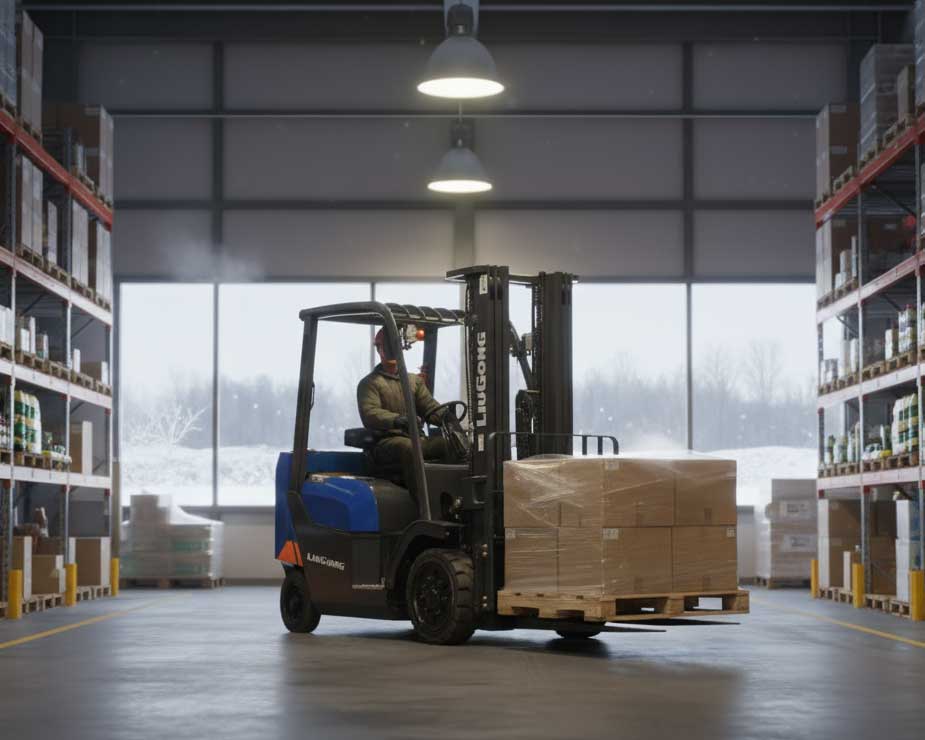
Ideal for heated warehouses. Li-ion batteries with heating systems perform well even at -30°C. Lead-acid batteries suffer heavy performance loss in freezing weather.
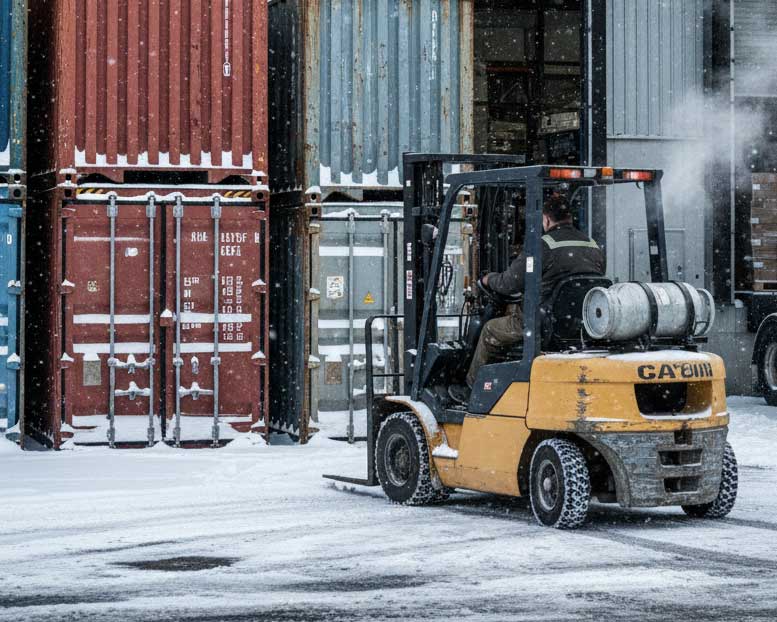
Start reliably in cold conditions, versatile for semi-indoor and outdoor work. Require proper ventilation indoors due to emissions.
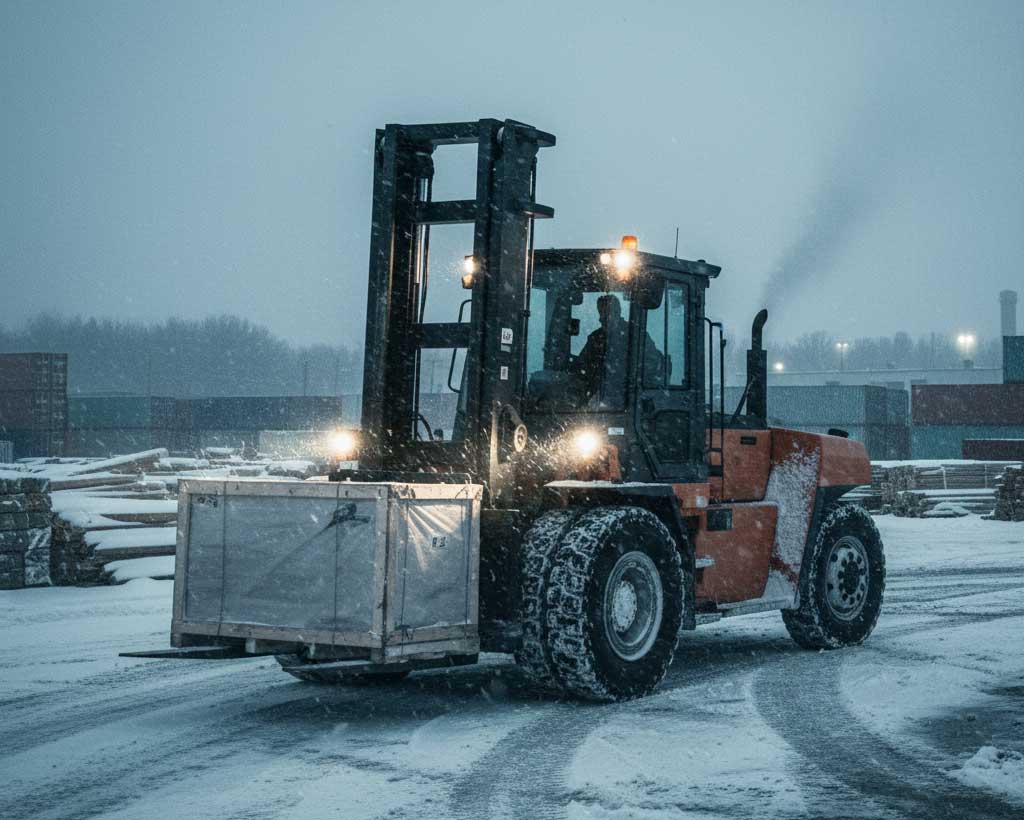
The strongest option for outdoor heavy-duty operations. Require engine pre-heaters in extreme cold. Not suitable indoors because of high emissions.
Québec: Forklifts in Harsh Snow Climates
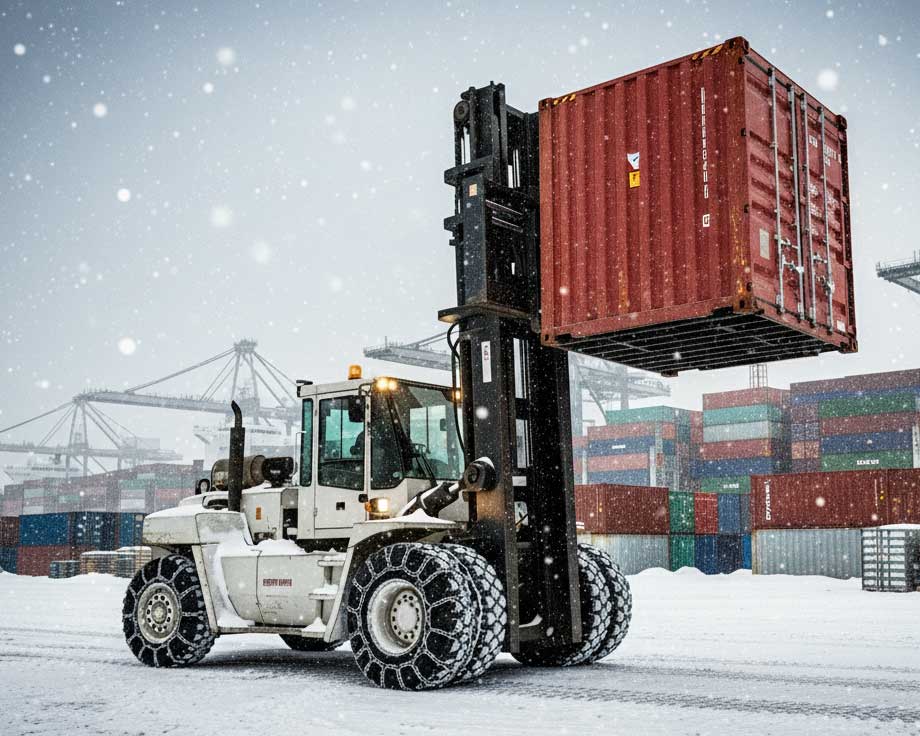
Québec winters feature heavy snow accumulations (200+ cm yearly) and temperatures dropping below -25°C in many regions.
- Warehouses: Li-ion electric forklifts with heated batteries and operator cabins.
- Ports & outdoor yards (e.g. Port of Montreal): Diesel forklifts with pneumatic tires, heated cabin, and pre-heaters.
- Mixed indoor/outdoor tasks: LPG forklifts.
Ontario: Forklifts for Mixed Winter Conditions
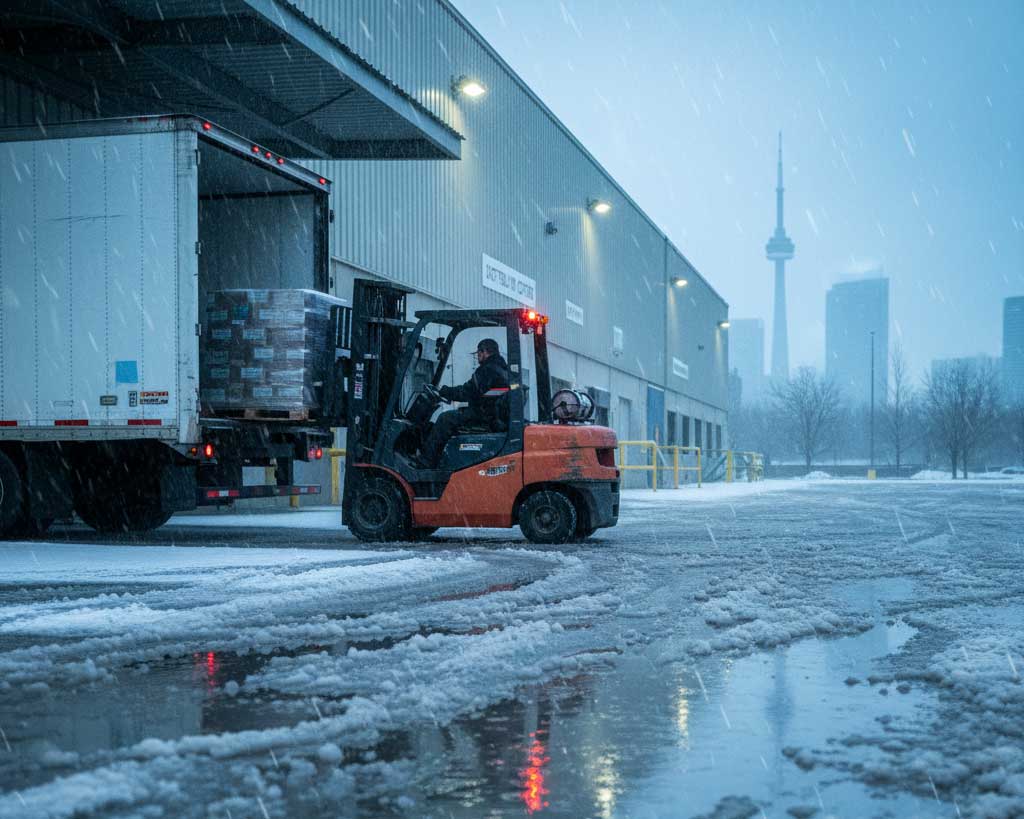
Ontario experiences varied winter challenges: heavy lake-effect snow, freezing rain in the south, and Arctic-level cold in the north.
- Southern Ontario (Toronto, Hamilton): Li-ion electrics for warehouses, LPG for semi-open docks.
- Northern Ontario (Sudbury, Thunder Bay): Diesel forklifts with pre-heaters and snow chains.
Forklift Selection in Other Canadian Provinces
Prairies (Alberta, Saskatchewan, Manitoba)
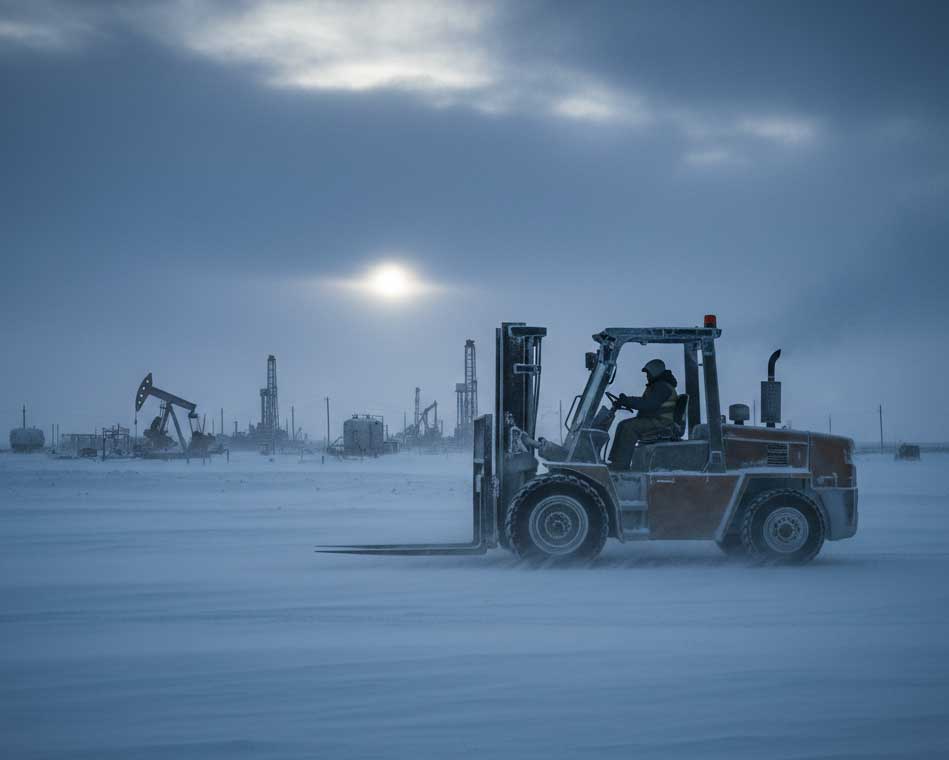
Cold, dry, windy. Best: Diesel forklifts with pneumatic tires and pre-heaters.
British Columbia
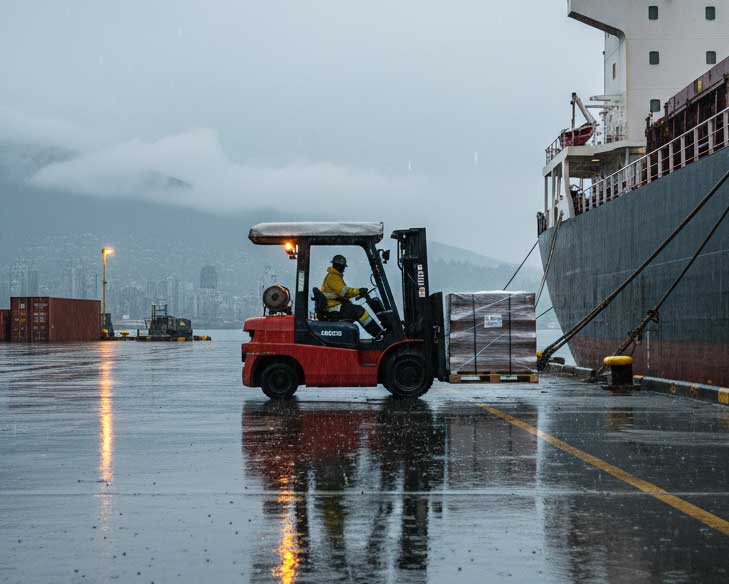
Coast (Vancouver): Rain + mild snow, ideal for LPG or electrics. Interior BC: Diesel/LPG due to colder, snowier climate.
Atlantic Canada
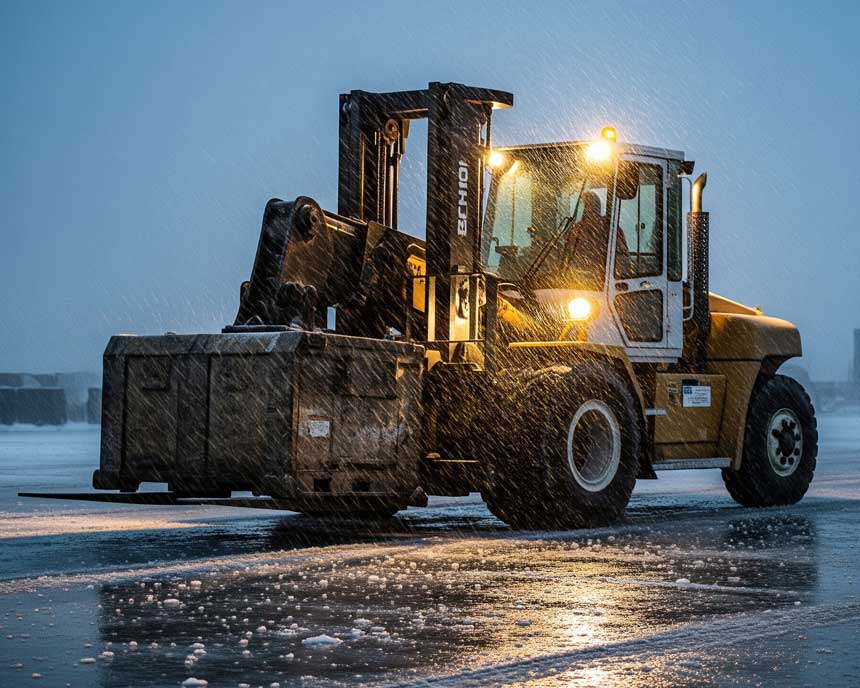
Snow mixed with freezing rain. Recommended: Diesel/LPG outdoors, Electric indoors.
Northern Territories (Yukon, Nunavut, NWT)
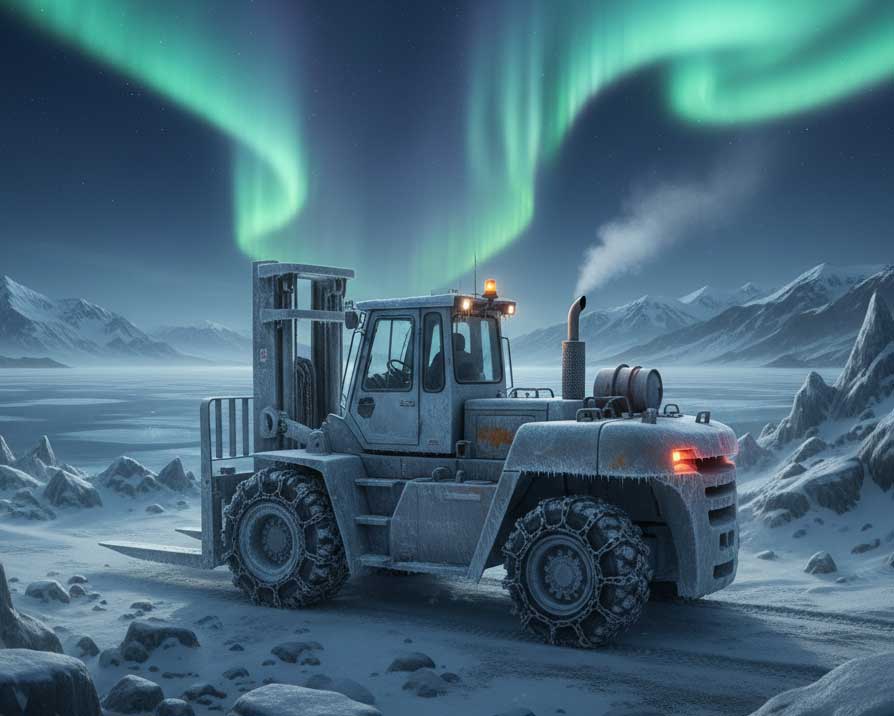
Extreme cold (-40°C). Only heavy-duty diesel forklifts with enclosed heated cabins and tire chains perform reliably.
📊 Quick Reference Table
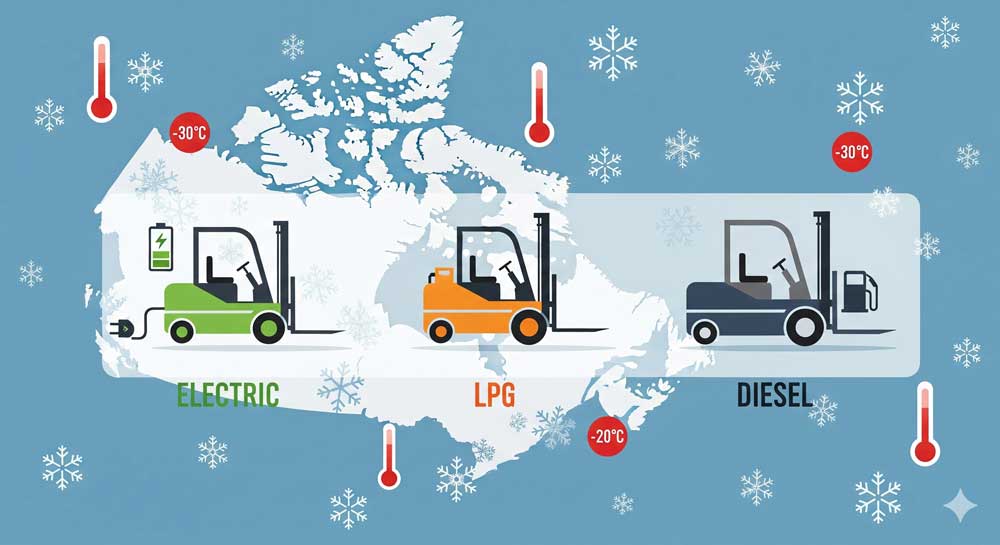
| Region | Winter Conditions | Best Forklift |
|---|---|---|
| Québec | -25°C, heavy snow | Electric Li-ion indoors / Diesel outdoors / LPG mixed |
| Ontario South | Snow + freezing rain | Electric (indoors) + LPG (semi-open) |
| Ontario North | -30°C, snow | Diesel with pre-heater |
| Prairies | Dry, windy, -30°C | Diesel heavy-duty |
| BC Coast | Rainy, mild snow | LPG/Electric |
| Atlantic Canada | Snow + ice rain | LPG or Diesel outdoor, Electric indoor |
| North | -40°C Arctic cold | Diesel heavy-duty with chains |
🔑 Conclusion
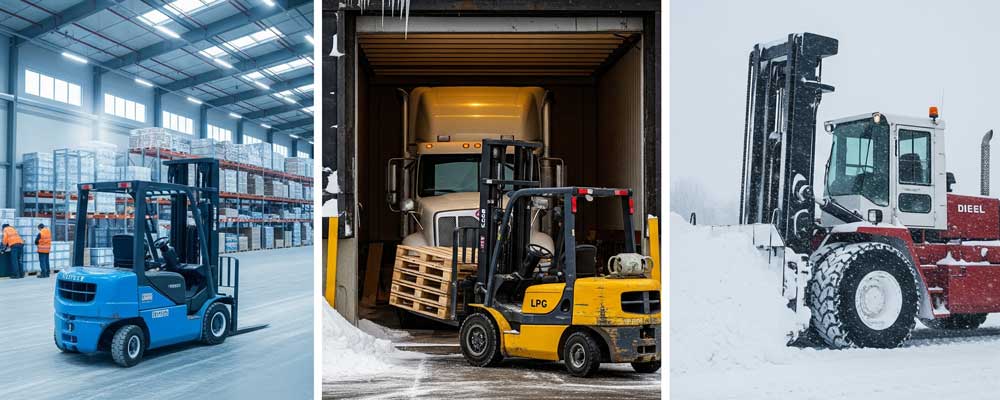
For Canadian winters:
- Heated warehouses: Electric Li-ion forklifts with heated batteries.
- Mixed operations: LPG forklifts.
- Open yards, ports, mining: Diesel forklifts with heated cabins.
❓ FAQ
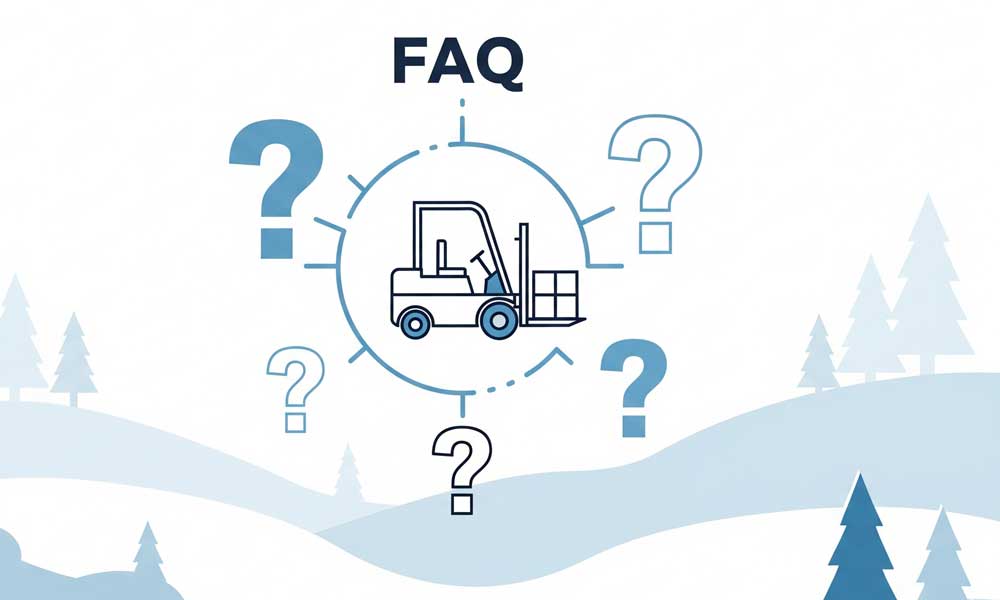
What’s best for warehouses in Canadian winters?
Electric Li-ion forklifts with battery heaters are ideal.
Can diesel forklifts start easily in -30°C?
Yes, but they require an engine block heater or pre-heater.
Why choose LPG forklifts?
LPG offers flexibility for both indoor (ventilated) and outdoor semi-covered operations.
